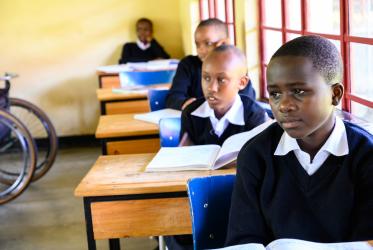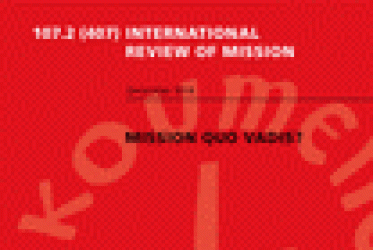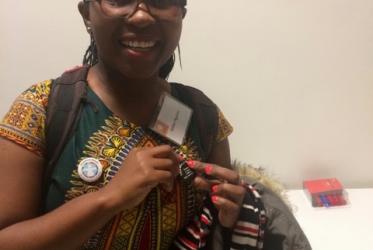Displaying 1 - 13 of 13
COVID-19 in conflict zones: “a crisis within another crisis”
27 November 2020
Moravian Church in Tanzania launches Thursdays in Black
10 September 2019
Mission and people with disabilities
26 June 2019
New issue: International Review of Mission
14 December 2018
A safe space for sinners to change and for pain to be shared
03 August 2017
Christian and Muslim promote spiritual solidarity
14 June 2017
The work of the Spirit and discipleship in Christian mission
12 January 2017









